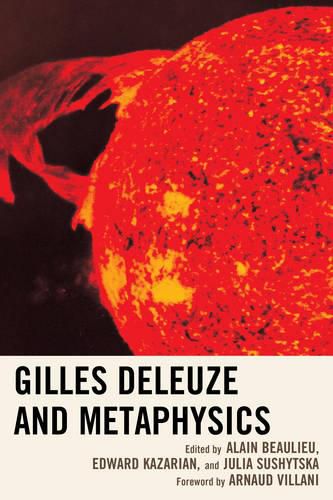Readings Newsletter
Become a Readings Member to make your shopping experience even easier.
Sign in or sign up for free!
You’re not far away from qualifying for FREE standard shipping within Australia
You’ve qualified for FREE standard shipping within Australia
The cart is loading…






Deleuze remains indifferent to the ambient pathos related to the end of metaphysics and compares the undertakings of destruction, overcoming and deconstruction of metaphysics with the gestures of murderers. He considers himself a pure metaphysician, which is rather unique in the contemporary philosophical landscape. What are we to make of this and similar claims? What do they mean in light of the effort made during the last several centuries to overcome, overturn, destroy, or deconstruct metaphysics? If we consider Deleuze’s work more closely, might find him engaging in the kind of thinking that is commonly referred to as metaphysical? And if Deleuze is indeed a metaphysician, does this undercut the many insightful contributions of the twentieth century philosophers who dedicate their thought to bringing down Western metaphysical tradition? Or does it suggest that there is a sense of metaphysics that should nevertheless be preserved? These and similar questions are addressed in this volume by a series of international scholars. The goal of the book is to critically engage an aspect of Deleuze’s thought that, for the most part, has been neglected, and to understand better his immanent metaphysics. It also seeks to explore the consequences of such an engagement.
$9.00 standard shipping within Australia
FREE standard shipping within Australia for orders over $100.00
Express & International shipping calculated at checkout
Deleuze remains indifferent to the ambient pathos related to the end of metaphysics and compares the undertakings of destruction, overcoming and deconstruction of metaphysics with the gestures of murderers. He considers himself a pure metaphysician, which is rather unique in the contemporary philosophical landscape. What are we to make of this and similar claims? What do they mean in light of the effort made during the last several centuries to overcome, overturn, destroy, or deconstruct metaphysics? If we consider Deleuze’s work more closely, might find him engaging in the kind of thinking that is commonly referred to as metaphysical? And if Deleuze is indeed a metaphysician, does this undercut the many insightful contributions of the twentieth century philosophers who dedicate their thought to bringing down Western metaphysical tradition? Or does it suggest that there is a sense of metaphysics that should nevertheless be preserved? These and similar questions are addressed in this volume by a series of international scholars. The goal of the book is to critically engage an aspect of Deleuze’s thought that, for the most part, has been neglected, and to understand better his immanent metaphysics. It also seeks to explore the consequences of such an engagement.